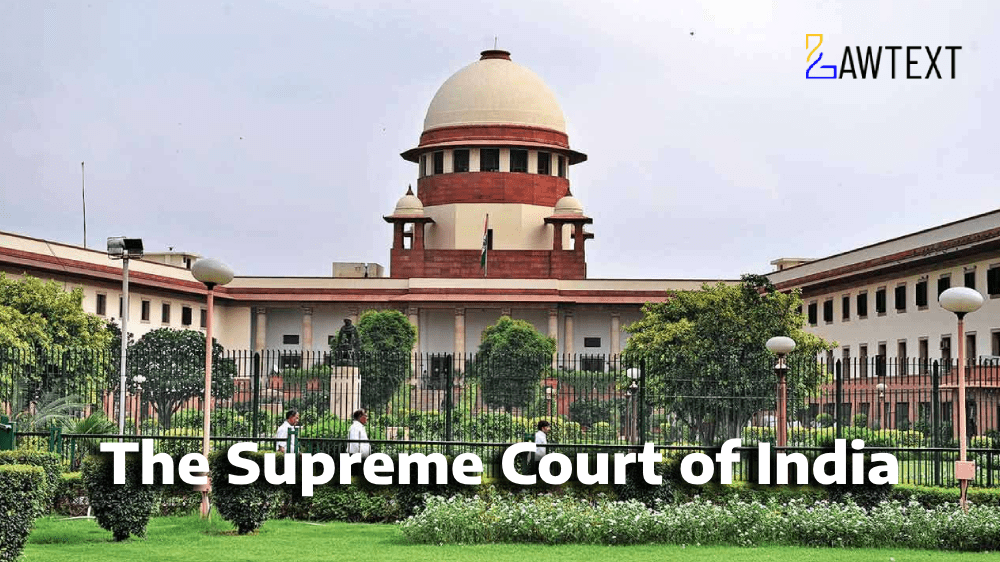CASE NOTE & SUMMARY
The judgment emphasizes the duty of states under Articles 21, 47, and 48A to ensure hygienic toilet facilities for all genders in court premises. The Court ruled that providing basic amenities is integral to the right to live with dignity and issued comprehensive directives for sanitation reforms in the judiciary.
- Key Relief Sought: Issuance of a writ of mandamus to ensure separate and hygienic toilet facilities in courts for men, women, and transgender persons, including accessibility for persons with disabilities.
- Core Issue: Violation of fundamental rights under Article 21 due to lack of hygienic toilet facilities in courts across India.
Acts and Sections Discussed:
- Constitution of India, 1950:
- Article 21: Right to life and dignity.
- Article 47: Duty of the State to improve public health.
- Article 48A: Protection of the environment.
- Transgender Persons (Protection of Rights) Act, 2019:
- Section 3: Prohibition against discrimination.
- Transgender Persons (Protection of Rights) Rules, 2020:
- Rule 10: Mandates infrastructure, including separate washrooms for transgender persons.
- International Conventions:
- Universal Declaration of Human Rights (1948) – Article 25.
- International Covenant on Economic, Social, and Cultural Rights (1966) – Article 12.
Ratio Decidendi:
- Hygiene and sanitation are integral to Article 21, ensuring the right to life with dignity.
- The lack of proper facilities impairs equal access to justice and contravenes State duties under Part IV of the Constitution.
- The judiciary must lead by example, ensuring proper infrastructure and inclusivity for all stakeholders.
Introduction
- Para 1-3: The petitioner, an advocate, filed a PIL under Article 32, highlighting the deplorable conditions of toilet facilities in courts across the country. Relief sought included separate, clean, and accessible toilets for all genders and persons with disabilities.
Legal Foundation
- Para 4-6: The Court emphasized that sanitation is a fundamental right under Article 21 and linked it to Articles 47 and 48A, reinforcing the State’s duty to protect public health and the environment.
Key Observations
- Para 7-9: Affidavits from High Courts revealed:
- Inadequate or no facilities for transgender persons.
- Poor maintenance of existing facilities.
- Absence of sanitary napkin dispensers and accessibility for persons with disabilities.
- Para 10: Highlighted the direct impact of poor facilities on access to justice and equality, especially for women and transgender persons.
Comparative Analysis
- Para 8.18-8.23: International practices in countries like Singapore, the UK, Australia, Germany, and Japan were cited to emphasize the global importance of hygienic public facilities.
Directions Issued
- Para 11: Directives to High Courts, State Governments, and UTs include:
- Construction of separate, accessible, and hygienic toilet facilities for all genders.
- Formation of committees for periodic audits and fund allocation.
- Mechanisms for maintenance, grievance redressal, and compliance reporting.
- Provision of temporary facilities like mobile toilets during construction phases.
Conclusion
- Para 13-14: The Court underlined that ensuring sanitation is not a privilege but a right, and mandated a follow-up to ensure compliance.
Subjects:
Judicial Infrastructure; Public Health; Fundamental Rights
Sanitation, Judicial Reforms, Right to Dignity, Accessibility, Gender Inclusivity, Article 21, Public Interest Litigation (PIL).
Citation: 2025 LawText (SC) (1) 150
Case Number: WRIT PETITION (C) NO. 538 OF 2023
Date of Decision: 2025-01-15
Case Title: RAJEEB KALITA VERSUS UNION OF INDIA & ORS.
Before Judge: [J.B. Pardiwala J. , R. Mahadevan J.]
Appellant: RAJEEB KALITA
Respondent: UNION OF INDIA & ORS.

